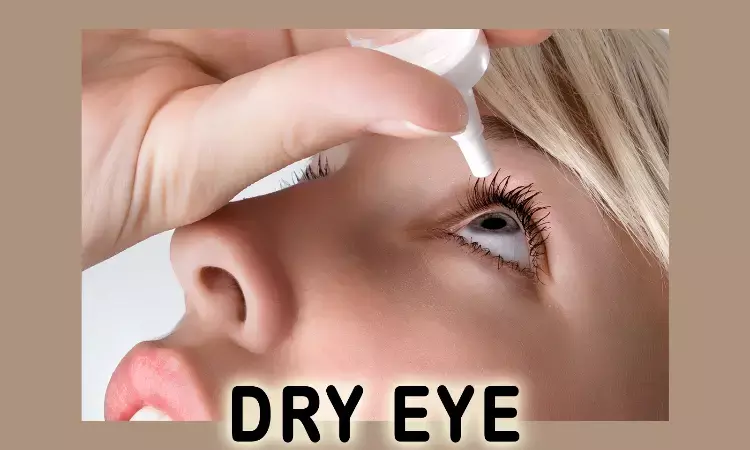- Home
- Medical news & Guidelines
- Anesthesiology
- Cardiology and CTVS
- Critical Care
- Dentistry
- Dermatology
- Diabetes and Endocrinology
- ENT
- Gastroenterology
- Medicine
- Nephrology
- Neurology
- Obstretics-Gynaecology
- Oncology
- Ophthalmology
- Orthopaedics
- Pediatrics-Neonatology
- Psychiatry
- Pulmonology
- Radiology
- Surgery
- Urology
- Laboratory Medicine
- Diet
- Nursing
- Paramedical
- Physiotherapy
- Health news
- Fact Check
- Bone Health Fact Check
- Brain Health Fact Check
- Cancer Related Fact Check
- Child Care Fact Check
- Dental and oral health fact check
- Diabetes and metabolic health fact check
- Diet and Nutrition Fact Check
- Eye and ENT Care Fact Check
- Fitness fact check
- Gut health fact check
- Heart health fact check
- Kidney health fact check
- Medical education fact check
- Men's health fact check
- Respiratory fact check
- Skin and hair care fact check
- Vaccine and Immunization fact check
- Women's health fact check
- AYUSH
- State News
- Andaman and Nicobar Islands
- Andhra Pradesh
- Arunachal Pradesh
- Assam
- Bihar
- Chandigarh
- Chattisgarh
- Dadra and Nagar Haveli
- Daman and Diu
- Delhi
- Goa
- Gujarat
- Haryana
- Himachal Pradesh
- Jammu & Kashmir
- Jharkhand
- Karnataka
- Kerala
- Ladakh
- Lakshadweep
- Madhya Pradesh
- Maharashtra
- Manipur
- Meghalaya
- Mizoram
- Nagaland
- Odisha
- Puducherry
- Punjab
- Rajasthan
- Sikkim
- Tamil Nadu
- Telangana
- Tripura
- Uttar Pradesh
- Uttrakhand
- West Bengal
- Medical Education
- Industry
Novel drops effective against dry eyes due to Meibomian gland dysfunction

The study by the team led by Joseph Tauber found that NOV03 ophthalmic drops was safe and effective in patients with dry eye disease (DED) associated with meibomian gland dysfunction (MGD). The findings of this study were published in Ophthalmology Journal.
NOV03 (perfluorohexyloctane) is a new ophthalmic drop that has been developed for the treatment of dry eye disease (DED) associated with meibomian gland dysfunction (MGD). DED is a common condition that is characterized by a lack of sufficient lubrication and moisture in the eye, leading to discomfort, pain, and reduced vision. MGD is a condition that affects the glands in the eyelids that produce the oily layer of the tear film, which helps to stabilize the tears and prevent evaporation. When these glands are not functioning properly, it can lead to DED.
The eight-week, phase 3, multicenter study included 597 patients who were randomized to receive either NOV03 or hypotonic saline drops four times daily. The primary endpoint was change from baseline in total corneal fluorescein staining (tCFS) at week 8, and the primary symptom endpoint was change from baseline in eye dryness score at week 8. Key secondary endpoints included changes in tCFS and eye dryness at week 2, eye burning/stinging at week 8, and central corneal fluorescein staining at week 8.
The findings of the study were:
NOV03 significantly improved tCFS and eye dryness compared to saline at week 8.
Improvements from baseline also significantly favored NOV03 on all key secondary endpoints, including tCFS and eye dryness at week 2, eye burning/stinging at week 8, and central corneal fluorescein staining at week 8.
Most adverse events were mild in severity, and there were no serious ocular adverse events. One patient discontinued NOV03 due to eye irritation.
Source:
Tauber, J., Berdy, G. J., Wirta, D. L., Krösser, S., & Vittitow, J. L. (2022). NOV03 for Dry Eye Disease Associated With Meibomian Gland Dysfunction: Results of the Randomized Phase 3 GOBI Study. In Ophthalmology. Elsevier BV. https://doi.org/10.1016/j.ophtha.2022.12.021
Neuroscience Masters graduate
Jacinthlyn Sylvia, a Neuroscience Master's graduate from Chennai has worked extensively in deciphering the neurobiology of cognition and motor control in aging. She also has spread-out exposure to Neurosurgery from her Bachelor’s. She is currently involved in active Neuro-Oncology research. She is an upcoming neuroscientist with a fiery passion for writing. Her news cover at Medical Dialogues feature recent discoveries and updates from the healthcare and biomedical research fields. She can be reached at editorial@medicaldialogues.in
Dr Kamal Kant Kohli-MBBS, DTCD- a chest specialist with more than 30 years of practice and a flair for writing clinical articles, Dr Kamal Kant Kohli joined Medical Dialogues as a Chief Editor of Medical News. Besides writing articles, as an editor, he proofreads and verifies all the medical content published on Medical Dialogues including those coming from journals, studies,medical conferences,guidelines etc. Email: drkohli@medicaldialogues.in. Contact no. 011-43720751


